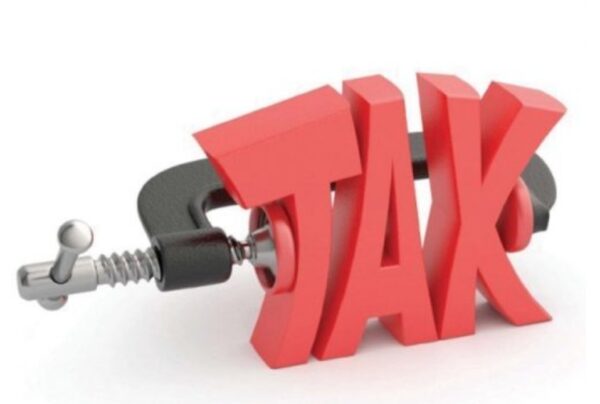FG generates N151bn from 11.53 million e-Passport booklets

Since the Federal Government started issuing e-Passports in 2007, the project which has been implemented with a private sector partner has fetched more than N151.45bn.
Since the Federal Government started issuing electronic passports, it has garnered over N151.45bn through the innovation, analysis has shown.
Figures obtained from the solution service provider, Iris Smart Technologies Limited, a Nigerian company, showed that from inception till December 2017, the project generated over N69.13bn and $120.34m (N43.32bn).
Also, the National Bureau of Statistics had in July 2019 reported that the Nigeria Immigration Service generated N39bn from the e-Passport project in 2018.
The N151.45bn was generated from about 11.53 million e-Passport booklets that had been issued since 2007.
The Federal Government did not commit any funds to the project, according to terms of the contract between the government and ISTL.
The e-Passport project had been a contractor-financed arrangement in which the solution provider, ISTL funded the project 100 per cent.
ISTL reportedly took a loan of N3bn in 2003 to fund the implementation of the project.
Going by the structure of the project, out of the revenue generated, ISTL gets paid for the goods and services delivered to the Nigeria Immigration Service.
The company is paid from the naira portion of the revenue, which is about 40 per cent of the naira earnings from the e-Passport booklets.
Two contracts were signed between the Federal Ministry of Internal Affairs and ISTL on May 14, 2003 and March 1, 2007, respectively.
The first contract termed e-Passport Technology Contract covered equipment, technology, subsystems and the supply of 5.5 million wafers (chip and antenna) and 5.5 million laminates.
The contract, which came into effect before the establishment of the Bureau for Public Procurement and the Infrastructure Concession Regulatory Commission, was approved by the Federal Executive Council with Council No. EC 2003 (14).
The second contract was the outcome of an international selection tender for the manufacturing of the e-Passport booklets and the embedding of the chips.
Following bids by three international companies and two local companies, ISTL’s proposal was adjudged to be the most technically competent and price competitive.
The contract was eventually approved by the FEC vide EC 2006 (44) after going through the then Budget Monitoring Project and Implementation Unit, which later became BPP.
Initially, the Nigeria Security Printing and Minting Plc, otherwise known as MINT, was requested to produce the first batch of the e-Passport booklets into which the chip supplied by ISTL would be embedded.
However, the booklets produced by MINT were reportedly not of international standard, a development which prompted the bidding process leading to the emergence of ISTL as the firm contracted for the production of the e-Passport booklets and embedding of the chips.
The national rollout of the project was performed by late President Umaru Yar’Adua in 2007, four years after the project was inaugurated by former President Olusegun Obasanjo in 2003.
Currently, the e-Passport project involves a network of 43 local and 43 foreign passports issuing centres, all linked to the Central Processing Centre, which also hosts the Automated Fingerprint Identification System, the Central Database Server and other subsystems.
Although the Nigerian e-Passport scheme has been recognised as among the most innovative globally by the International Civil Aviation Organisation, leading to Nigeria’s inclusion in the ICAO Technical Committee for Public Key Directory/Public Key Infrastructure, controversy has continued to trail the project.
The e-Passport booklets are produced in Malaysia, but it is the NIS that transfers data into the materials to activate the passport.
Plans to domesticate the project by manufacturing the e-Passport booklets locally had not been successful despite the Federal Government’s insistence on local production.
Several attempts by ISTL and MINT to float a Joint Venture Company that would produce the booklets locally had not been successful.
The latest attempt to hit the rocks was a Memorandum of Understanding signed by ISTL and MINT on February 9, 2019, which was intended to give effect to the Federal Government’s policy on domestication.
The MoU was signed at the Federal Ministry of Interior, with the minister, permanent secretary, Comptroller General of Immigration, senior officials of the ministry, the managing director of the MINT and the MD of the ISTL reportedly in attendance.
Sources involved in the arrangement observed that the MoU hit the rocks after it became clear during follow-up meetings that each party (ISTL and MINT) had a different understanding of what the government’s domestication policy entailed.
The Managing Director of ISTL, Mr Olayinka Fisher, observed that MINT, being a security printer, could not be an e-Passport solution provider as it was not a technology company.
With the Federal Government reportedly considering handing the e-Passport project to MINT, Fisher noted that MINT required a technology partner if it must go into the e-Passport project.
The Spokesman for NIS, Sunday James, said the decision on who should handle the project was an executive issue.
According to experts, an e-Passport project is technology based and not a security printing task as was the case in the pre e-Passport era.
Booklet production is said to constitute only 20 per cent of an e-Passport project, while the security printing aspect of an e-Passport constitutes 13 per cent of the various components of an e-Passport booklet.
An e-Passport booklet is an active electronic device, unlike the old Machine-Readable Passport, which is a just a printed booklet.
Going by international standards, it is impossible to have two different e-Passport projects running concurrently in any country.
Fisher further observed that appointment of a new booklet solution provider would be a costly venture.
He said, “There are over N20bn worth of systems and equipment, both local and international, in this secured e-Passport network.
“Therefore, if a new booklet solution provider is appointed, this technology infrastructure would have to be discarded.
“This investment would be lost and a new network must be purchased and implemented at a greater cost to the Federal Government.”
He opined that establishing a new e-Passport solution would require a duration of 18 to 36 months for the rollout of the new infrastructure.







